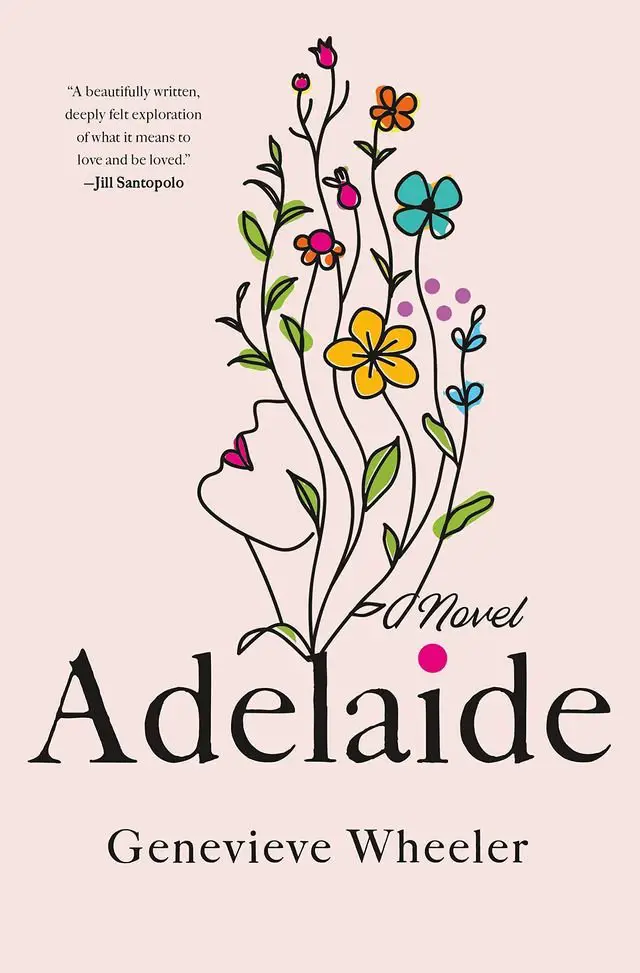Content notice: This story contains details about depression and suicidal ideation.
On one of the first sunny days of April 2021, I sat in a tattoo shop in east London, wincing slightly as an artist inked the letters EIC and a small semicolon on the sides of my ring and middle fingers . EIC stands for everything is copy, a nod to Nora Ephron’s iconic quote about anything that serves as storytelling fodder. The semicolon was a hat tip to the English language, of course, but also something deeper, a reminder that I had reached the light at the end of a very dark and tumultuous tunnel, something I honestly could not have imagined even a year and a half before. Both were celebrations of my recent book deal, but more than that, they were celebrations of my survival.
In the fall of 2019, I collapsed. I had come to the end of an incredibly toxic 18 month relationship with no gas in the tank, having given so much of myself to a man who couldn’t, would not be, he loves me back and i didn’t know how to put the pieces of myself and my life back together. I felt like I was trapped and floating aimlessly at the same time, struggling to find connection on this side of existence. So, I decided I wanted to end my life.
My attempt, fortunately, didn’t work. Instead, I found myself in a hospital room with a close friend and a medical team, answering questions about my current emotional state and mental health history, trying to come up with a plan for the future. We agreed that I would take time off work and check in with the nurses daily, so they could monitor my feelings and behaviors. I also met with a psychiatrist who broke the news that at the time I thought it would drastically change my life and relationships, and not for the better: I had bipolar disorder, like two.
In a roundabout way, this mental health crisis ended up saving my life. While I’ve known for a long time that I have manic and depressive tendencies, I had never before considered that I might have bipolar or that there might be treatments to address the specific challenges I was facing. Not until this psychiatrist (and then another psychiatrist, e another psychiatrist) examined me and uttered the simple words, I think not, I Knowyou have bipolar disorder. My breakup was the trigger, the catalyst, but it wasn’t the cause of my suicide attempt. This newly diagnosed disease was. And I could treat it. I could improve.
It was releasing a relief, almost and it made sense to me. I wasn’t exactly a textbook case, but finding out I had bipolar disorder explained a lot of my behavior and shed new light on experiences I’d had in the past: the sleepless weeks I’d spent obsessing over the smallest things, come on minor projects at work to dating app conversations. The low meltdowns I experienced after those weeks, crying in the office bathroom when superiors gave me minor criticism, or in the arms of a friend after being ghosted.
But this news also scared the shit out of me. Learning I had bipolar made me feel like I was doomed to wear a glowing scarlet letter, flashing warning sign to all future partners: Stay away from this, she’d say. She’s too damaged, too sick, too ~bipolar~. I had enough difficulty with dating in my 20s. Now, I’d have to navigate this already rocky terrain with a new set of emotional baggage. I pictured myself revealing my diagnosis in a weighty, decisive conversation with any potential love interest, and who would want to stick around after that? NobodyI thought.
So many of the representations we see of bipolar, particularly in single women, are grave and one-dimensional. They’re talking a mile a minute, then yelling and brandishing knives. They are threats to themselves and to others. I am absolutely freaked out. (Think: Erin Silver inside 90210 or the character of Anne Hathaway in Modern love.) Having grown up with close friends and family who also suffered from bipolar, I knew these were exaggerated representations. AND absolutely possible to manage this disease. But I wasn’t sure the people I dated would be as understanding. There is still so much stigma attached to mental illness, I was convinced that even the most caring and compassionate person would likely see it as a burdensome quality in a partner.
To clarify, bipolar disorder, a mental health condition in which your moods tend to swing from one extreme to another, from dizzying highs to radical lows (most commonly treated with medication and mood-stabilizing therapy) it is a diagnosis of great impact. It should be taken seriously by those who experience it and those closest to them. In my case, learning that I had bipolar disorder meant seeking additional, tailored forms of therapy, as well as several months spent with psychiatrists, finding and tailoring the appropriate cocktail of medications. But it also wasn’t, and isn’t, the nail in the proverbial coffin of my romantic life that I thought it would be.
I didn’t immediately go back to dating after my breakup (and subsequent diagnosis) for a variety of reasons. Not only was I still tender about my past relationship, I still needed time to lick my wounds, but I also knew I had to prioritize myself for a change. I needed to focus my energies on keeping myself healthy in every sense of the word, through therapy, conversations with friends, medications, and more. When I dipped my toe into the dating pool again, I did so relatively casually and without expectation. I came out with a stronger sense of self and with a much more astute understanding of the dangers that come with over-investing in another person (especially one who doesn’t invest equally in you), romantically or otherwise. I went on a few dates here and there; nothing serious I felt required me to disclose my recent diagnosis. Although one man told me, right off the bat, that he just didn’t think mental health was as important as physical health, which made my stomach churn on nerves. Is this how everyone I’ve dated would feel?
And then I met Iain. We met on a dating app in September 2020 and, for obvious pandemic-related reasons, didn’t meet in person until April 2021, instead exchanging memes and jokes on WhatsApp for months. Almost immediately after we met in person, I knew I was in worse trouble.
Iain was kind and intelligent, dimpled and charming, thoughtful and easy-going, well adjusted and just as enthusiastic about making friends with stranger dogs as I was. Naturally, I was terrified that the moment he learned of my struggles with mental illness, he would vanish as quickly and magically as he had appeared. Not because he didn’t seem empathetic and understanding, but because he could definitely date, why would he choose to date (what I considered to be) harmed me?
I did not Touch crazy if nothing else, my post-diagnosis treatment plan has made me feel healthier than ever. But again, I figured telling a potential partner about my bipolar meant showing him the bright red B around his neck, a letter I feared he wouldn’t be able to see past. It was so wonderful, but what if he too had preconceived notions about bipolar? What if he changed his perception of me? My romantic history to date had taught me that men would take any excuse to avoid commitment; learning that I had an often stigmatized disease must have been more than enough reason for me to leave.
I kept my truth close to my vest until our sixth or seventh date, when Iain asked about the freshly inked semicolon on my finger. Even though we hadn’t really discussed his mental health up to that point, I felt like I had a solid enough idea of his character that I could trust him. I also knew he was warm, open-minded, and being with him felt like melting butter on toast, so I told him my tattoo had a double meaning: my recent book deal, as well as my less recent attempt of suicide.
The writer could have chosen to finish the sentence, I explained, but they continued.
Iain nodded politely, taking my hand in his, apologizing for feeling that depression and expressing gratitude that I was still here. He made me feel safe, cared for, and comfortable enough to share later that evening that my suicidal thoughts were actually a symptom of my bipolar. Again, he nodded, fully understanding and accepting, completely indifferent.
Our conversation allowed me to rewrite the narrative a bit in my head, to realize that having bipolar disorder wasn’t all-encompassing or defining; it was simply an element of who I was (and am). If Iain wanted to date me, he would find a kind and supportive girl who Also happened to have bipolar. It didn’t get more complicated than that.
It’s been over two years since I shared my diagnosis with Iain, and he and I are still together. He has seen me through my highest and lowest moments, always reminding me that he loves me for all that I am, both dark and light. While I’m still learning to deal with my bipolar, it’s not the big, messy stain on our relationship, or on me, that I once feared it would be. It hasn’t stopped me from being a supportive and reliable partner, nor has it stopped me from finding one in Iain.
My past relationships have led me to believe that love and affection are conditional; that I had to show up exactly the way my boys wanted me to go, no more, no less, to earn their commitment and adoration. But even from our silly text conversations, Iain has made me feel comfortable, at home in his company, and like I can present myself exactly as I am. I had worried, unnecessarily, that learning I had bipolar might taint how he viewed me, but it didn’t. Obviously not. Because no matter how stigmatized a condition may be, a worthy partner will accept every single part of you and love you completely the way you deserve to be loved.
If you or someone you know is struggling with a mental illness, contact the Mental Health Services Administration’s National Helpline at 800-662-HELP or visit FindSupport.gov.

Genevieve Wheeler (s/he) is a freelance writer covering pop culture, dating, travel, and everything in between (including how to have sex on an airplane, you’re welcome). Her signatures have appeared in the likes of Vice, Fashion business, Teen Vogue, Elite newspaper, Business Insider, Mashableand PopSugar, with his work and words quoted in the New York Times, voxthe BBC, Cheddar News, Jezebel, and beyond. His debut novel Adelaideis released in April 2023 by St. Martins Press.
#afraid #bipolar #dating #life
Image Source : www.cosmopolitan.com
